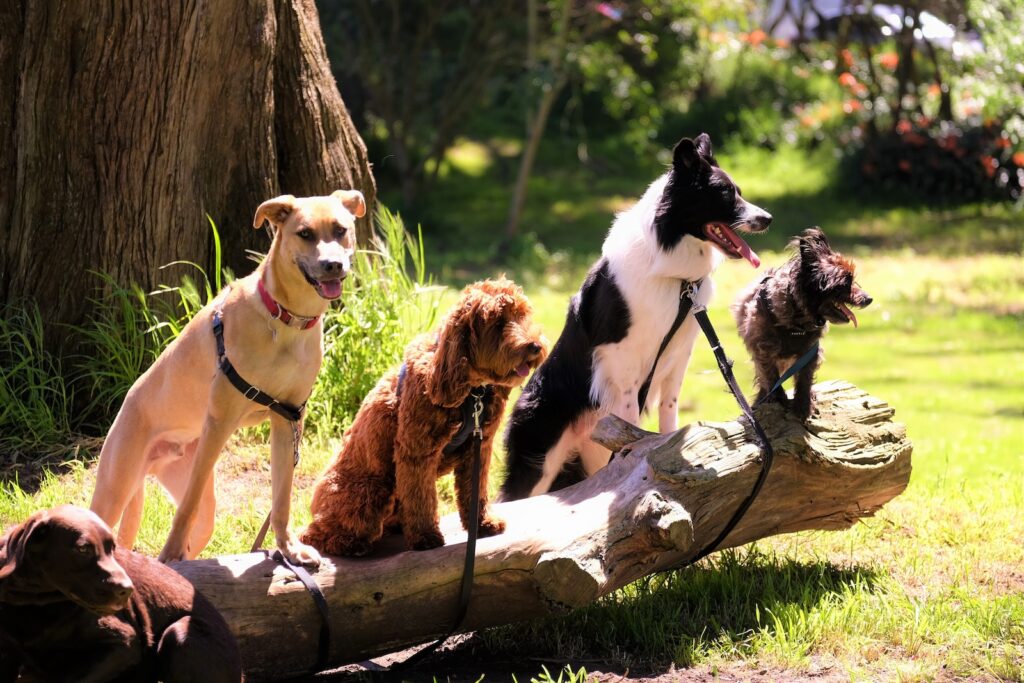Can Dogs Eat Acorns? — No, They Can’t
As a dog owner, it’s important to be aware of what foods are safe for your furry friend to consume. When it comes to acorns, it’s best to steer clear and keep them out of your dog’s reach. Acorns pose a potential risk to dogs and can be harmful if ingested.
Can Puppies Eat Acorns?
Just like adult dogs, puppies should also avoid eating acorns. In fact, the risk of harm is even higher for puppies due to their smaller size and developing immune system. It’s crucial to ensure that your puppies do not have access to acorns, whether on walks or in your backyard.
Why are Acorns Harmful for Dogs?
There are several reasons why acorns can be harmful to dogs. Let’s explore each one:
Potential Risk 1: Digestive Issues
Dogs cannot fully digest acorns, which can lead to various digestive problems such as diarrhea, vomiting, and stomach discomfort. Acorns contain tannins that are difficult for dogs to break down, causing irritation and inflammation in their digestive system.
Potential Risk 2: Obstruction Hazard
Acorns are small and hard, making them a choking hazard for dogs. If a dog swallows a whole acorn or large pieces of it, it can get lodged in their throat, esophagus, or intestinal tract. This can result in a dangerous obstruction that may require immediate medical intervention.
Potential Risk 3: Toxicity
While acorns themselves are not highly toxic to dogs, they can still cause toxicity if ingested in large quantities. The tannins present in acorns can lead to kidney damage and even liver failure if consumed in excessive amounts.
Symptoms to Watch Out For After Dogs Consume Acorns
- Diarrhea: Frequent loose or watery stools can indicate that your dog has consumed acorns.
- Vomiting: If your dog vomits repeatedly, it could be a sign of acorn ingestion.
- Abdominal Discomfort: Watch for signs of discomfort such as restlessness, pacing, or whining.
Immediate Steps to Take if Your Dog Eats Acorns
- Monitor Your Dog: Keep a close eye on your dog’s behavior and look out for any unusual symptoms.
- Limit Access to Acorns: Remove any acorns in your yard and prevent your dog from picking them up during walks.
- Contact Your Veterinarian: If you suspect your dog has ingested acorns or is showing symptoms, it’s important to consult your vet for guidance and potential treatment.
Safe Alternatives to Acorns
Although acorns are off-limits for dogs, there are plenty of other safe and enjoyable food options. Consider offering your dog these alternatives:
- Apples — Apples are a great source of vitamins and fiber for dogs. Just remember to remove the seeds and core before offering them to your furry friend.
- Carrots — Carrots are low in calories and high in nutrients, making them a healthy and crunchy treat for dogs.
- Blueberries — Blueberries are packed with antioxidants and can be a delicious alternative to acorns.
Conclusion
In conclusion, acorns should be kept away from dogs as they can be harmful and pose various risks. It’s important to prioritize your dog’s well-being and provide them with safe alternatives for a healthy diet. If you suspect your dog has consumed acorns or is displaying symptoms, consult your veterinarian immediately for proper guidance and care.
Frequently Asked Questions
Can acorns cause kidney failure in dogs?
While acorns can lead to kidney damage in dogs if consumed in large quantities, the risk of kidney failure is generally low. However, it’s best to avoid acorns altogether to prevent any potential harm.
What should I do if my dog ate acorns?
If your dog has ingested acorns, monitor their behavior and look for symptoms such as diarrhea, vomiting, or abdominal discomfort. Contact your veterinarian for guidance and potential treatment.
Are all types of acorns harmful to dogs?
Although acorns themselves are not highly toxic to dogs, it’s best to consider all types of acorns as potentially harmful due to their digestive and choking hazards. It’s safest to keep your dog away from any kind of acorns.
Can acorns cause an intestinal blockage in dogs?
Yes, if a dog swallows a whole acorn or large pieces of it, it can cause an intestinal blockage. This is a serious condition that requires immediate veterinary attention.






